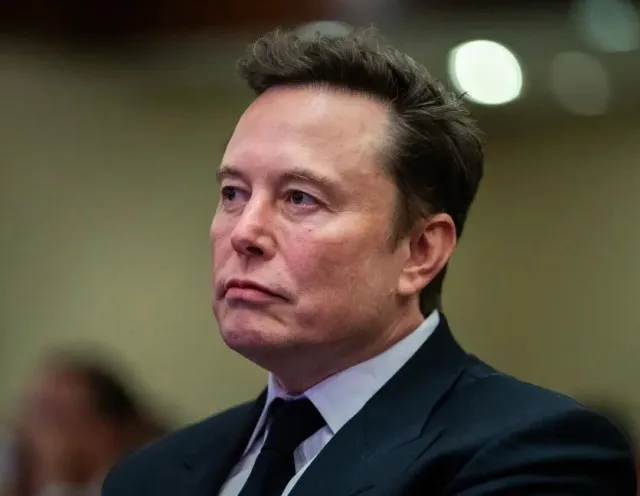In a bold move, Elon Musk has called on his supporters to stop donating to Wikipedia. This came after the Wikimedia Foundation revealed its budget allocation, which included over $50 million for diversity, equity, and inclusion (DEI) initiatives. Musk’s public criticism has reignited debates about Wikipedia’s political neutrality and the prioritization of funds for controversial initiatives.
Let’s dive into why Musk issued this statement, what the DEI spending entails, and the larger implications for Wikipedia’s reputation and funding.

Elon Musk urged supporters not to donate to Wikipedia due to its $50 million spending on DEI initiatives. Image Credits: Getty
Elon Musk Questions Wikipedia’s DEI Spending
Earlier this week, Musk took to his social media platform, X (formerly Twitter), to criticize the Wikimedia Foundation’s budget allocation. His statement was triggered by a post from the conservative account “Libs of TikTok,” which highlighted the foundation’s $51.7 million expenditure on DEI-related initiatives.
Musk, known for his outspoken views, didn’t hold back. He advised his followers to “Stop donating to Wokepedia until they restore balance to their editing authority.” This was not Musk’s first criticism of Wikipedia, but it marked a significant escalation in his public stance against the platform’s management.
The numbers are eye-opening: Wikipedia’s total budget for 2023-24 stands at $177 million, of which nearly 30%—or $51.7 million—is directed toward DEI-related projects. These projects are further divided into:
- Equity initiatives: $31.2 million (17.6% of the budget)
- Safety and inclusion efforts: $20.5 million (11.6% of the budget)
The largest share of the budget, 48.7% ($86.1 million), is allocated for infrastructure.
Critics Raise Concerns Over DEI Spending
The controversy surrounding DEI initiatives isn’t new. While proponents argue that DEI policies foster inclusivity and address systemic inequalities, critics—especially those on the political right—see them as unnecessary or even harmful.
Some argue that DEI initiatives foster reverse discrimination, disadvantaging certain groups and de-emphasizing merit. The backlash against DEI spending has intensified in recent years, with corporations like Walmart, Ford, and Boeing reassessing their strategies in response to public pressure.
For Wikipedia, the hefty $51.7 million allocation to DEI projects has sparked similar criticism. Many donors, who expect their contributions to go toward maintaining and improving the platform’s infrastructure and content, are questioning whether these funds are being used appropriately.

Wikipedia’s Longstanding Political Bias Debate
Musk’s criticism has brought renewed attention to Wikipedia’s claims of political neutrality. Over the years, the platform has faced accusations of left-leaning bias.
A report from the Manhattan Institute highlighted this trend, noting that Wikipedia articles about conservative figures often present them in a more negative light than their liberal counterparts. One example cited was the removal of Vice President Kamala Harris’s designation as “border czar” from her Wikipedia page, allegedly to align with a political narrative after Joe Biden endorsed her for re-election.
These incidents raise questions about whether Wikipedia’s editorial team adheres to its neutrality policy or allows personal and political biases to influence its content.

The Wikimedia Foundation allocated 29% of its 2023-24 budget to diversity, equity, and inclusion efforts. Image Credits: Getty
Larry Sanger’s Criticism of Wikipedia’s Editorial Practices
Larry Sanger, Wikipedia’s co-founder, has been one of the most vocal critics of the platform’s current direction. Sanger has repeatedly expressed concerns that left-leaning volunteers selectively edit content to align with particular political narratives.
He cited examples like the suppression of the Hunter Biden laptop story and argued that Democratic-leaning volunteers often remove content that doesn’t align with their views. Sanger’s concerns have fueled ongoing debates about the transparency and fairness of Wikipedia’s editorial practices.
Interestingly, Sanger’s relationship with Wikipedia’s other co-founder, Jimmy Wales, has been marked by public disagreements. Sanger has claimed that he played a more significant role in the platform’s creation than Wales acknowledges. These tensions have only added to the scrutiny of Wikipedia’s internal operations.
Musk’s Call to Action: A Larger Debate on Neutrality and Spending
Elon Musk’s call to halt donations to Wikipedia isn’t just about the $50 million DEI budget—it’s part of a larger conversation about the platform’s credibility. By labeling the platform as “Wokepedia,” Musk implies that Wikipedia has deviated from its original mission of providing neutral, unbiased information.
This isn’t the first time Musk has used his platform to criticize organizations or movements he believes have strayed into ideological activism. However, his massive influence—spanning nearly 210 million followers on X—means that his statements can have real-world consequences.

DEI initiatives, often criticized by conservatives, aim to diversify workforces but face backlash for reverse discrimination. Image Credits: Getty
Implications for Wikipedia’s Future
As public scrutiny over Wikipedia’s spending and editorial practices grows, the platform faces a difficult challenge. On one hand, it must address concerns from donors and users who question its neutrality and spending priorities. On the other, it needs to maintain its commitment to fostering diversity and inclusivity within its community.
The backlash over the DEI spending could lead to a decline in donations, especially from those who share Musk’s concerns. This could force Wikipedia to rethink its budget priorities and find ways to reassure its user base about the fairness and neutrality of its content.
Conclusion: A Debate That Won’t End Soon
Elon Musk’s criticism of Wikipedia has reignited debates about the platform’s spending, editorial practices, and political neutrality. While Wikipedia remains one of the most visited websites in the world, its reputation depends on the trust of its users and donors.
The $50 million allocation to DEI initiatives has raised legitimate questions about whether Wikipedia is staying true to its mission—or allowing ideological priorities to take center stage. As the debate continues, one thing is clear: Wikipedia’s future depends on finding the right balance between inclusivity, neutrality, and transparency.
The controversy is far from over, and as more voices join the conversation, the world will be watching closely.